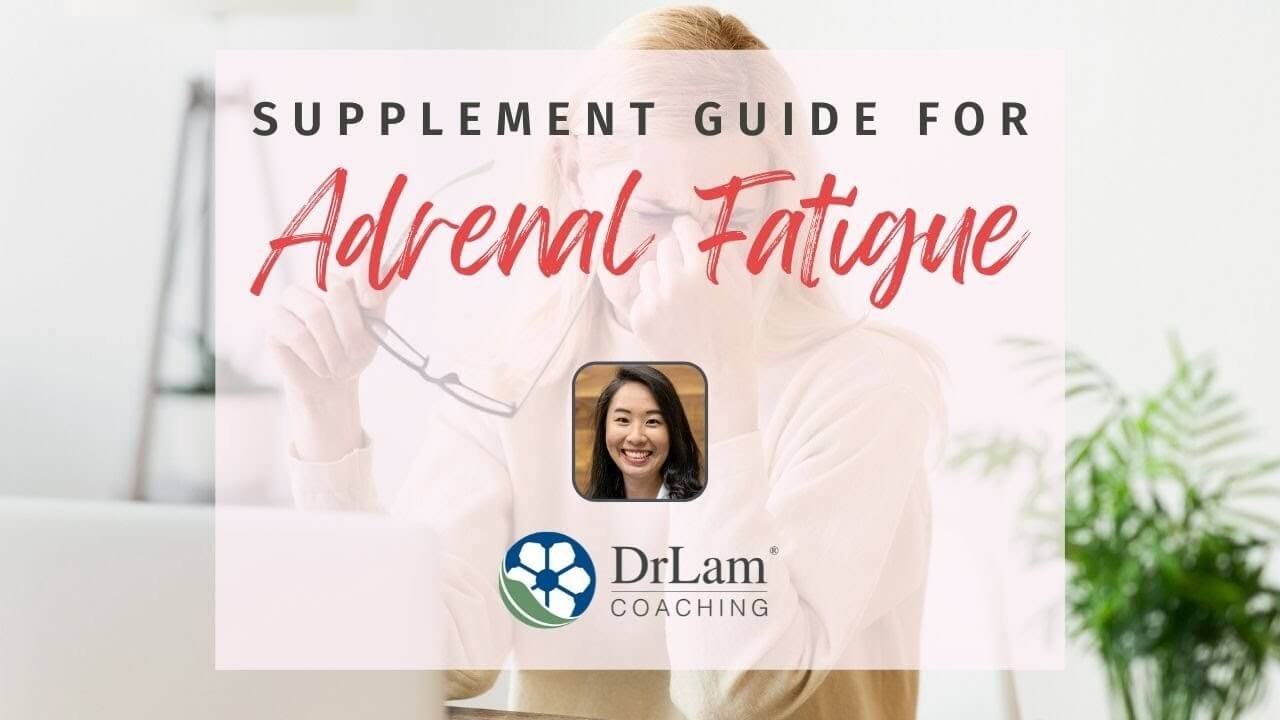
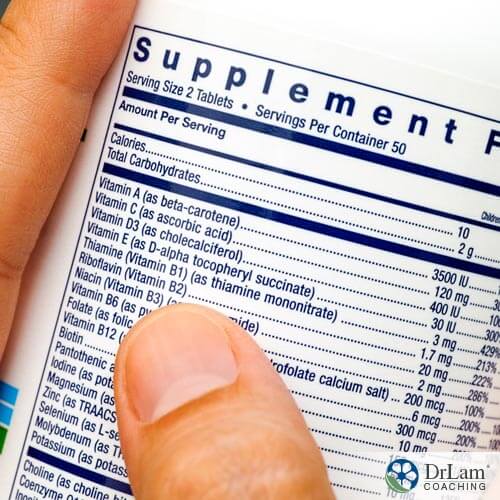 One of the most frequent questions AFS sufferers ask is: “What adrenal fatigue supplements should I take?” This is a very good question that we hear often from our nutritional coaching clients, but unfortunately, the answer is not simple.
One of the most frequent questions AFS sufferers ask is: “What adrenal fatigue supplements should I take?” This is a very good question that we hear often from our nutritional coaching clients, but unfortunately, the answer is not simple.
First, if you are asking this question, you need to consider how you are expecting supplements to fit into your overall health goals. Do you only want fast relief? Does it seem easier than changing your diet? Or do you truly do have a strong foundation for recovery and supplements will just be an added support?
As you consider taking supplements, make sure that you are not taking the shotgun approach. This is by far one of the most common yet biggest mistakes we see people make in their effort to feel better faster. It’s basically where you take a bunch of different supplements, without planning or research, hoping that some combination will work. This poses two problems:
As we get into the different types of adrenal fatigue supplements listed in this article, we’ll point out what kind of paradoxical reactions they might have on you in more detail. But in all cases, we strongly advise against the shotgun approach.
If you’re looking to take adrenal fatigue supplements because you don’t want to make the dietary changes necessary for recovery, then you’ll get nowhere. One of the main pillars of adrenal fatigue recovery is the adrenal fatigue diet, and without proper nutrition, there is no way to get better. Supplements may be used to fill in nutritional gaps from time to time, but they are not a proper substitute for healthy, well-rounded, nutritious meals.
So, that leaves us with the last possible motivation for taking adrenal fatigue supplements: you already have that strong foundation for recovery consisting of the adrenal fatigue diet, lots of rest and sleep, stress management, and some form of mild exercise suitable for your condition, and you just want to give yourself that extra boost. In that case, supplements can be very useful, depending on your needs and condition. This is something we address with clients in our nutritional coaching sessions.
Your symptoms, and indeed every system in your body, is connected. The adrenal glands are part of the hormonal circuit of the NeuroEndoMetabolic (NEM) Stress Response, and they function as part of the hormone cascade called the hypothalamic-pituitary-adrenal (HPA) axis. When you are faced with stress, whether physical or psychological, the hypothalamus and pituitary gland in the brain signal to the adrenal glands to secrete cortisol, the body’s main anti-stress hormone.
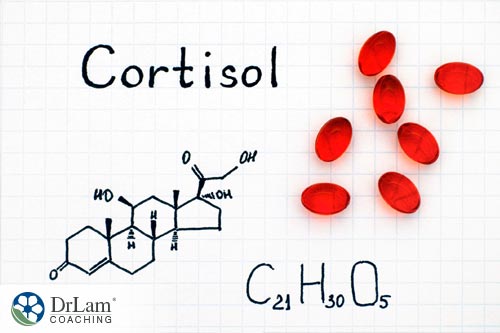 Cortisol is responsible for functions such as blood pressure and blood sugar regulation, heart and blood vessel maintenance, suppressing the immune system, and neutralizing inflammation.
Cortisol is responsible for functions such as blood pressure and blood sugar regulation, heart and blood vessel maintenance, suppressing the immune system, and neutralizing inflammation.
Chronic stress overworks the adrenal glands because they have to keep secreting more and more cortisol. This marks the beginning stages of Adrenal Fatigue Syndrome (AFS). But after a while, the adrenals become exhausted, and they can’t produce cortisol anymore. At this point, the rest of the NEM circuits are left to compensate for the loss of its most important anti-stress hormone.
Symptoms of AFS include fatigue, easily gaining weight and difficulty losing it, insomnia, brain fog, hair loss, frequent colds and flu, food and drug sensitivities, anxiety, mild depression, PMS, low libido, infertility, heart palpitations, hypoglycemia, sugar and salt cravings, and many others.
In the beginning stages of AFS where symptoms are mild, adrenal fatigue supplements can be quite useful, because your system is still strong enough to metabolize and utilize them. But once you get to the more advanced stages, your adrenals and your body in general are very weak, and so taking supplements might be too much on your system.
This is especially so because, in the advanced stages of AFS, your NEM is overloaded, and most likely, its circuits are beginning to dysregulate as well. The adrenal glands are part of the hormonal circuit, along with the thyroid and the reproductive organs (female ovaries and male testes). As soon as the adrenals weaken, the thyroid’s function can slow as well. This adds to the fatigue.
There are supplements that help regulate hormones and support the adrenal glands, but do you take those or do you also need something for the other circuits?
Many ask this question. But taking supplements for each symptom could lead you to take a lot of supplements, with no real plan for healing, as you will see.
Right along with the hormonal circuit, the bioenergetics circuit is engaged. It is composed of the thyroid, pancreas, and liver. And, because it has such a huge effect on metabolism, with the thyroid regulating the basal metabolic rate, the pancreas controlling glucose metabolism, and the liver clearing out metabolic byproducts, if it dysregulates, your metabolism and energy levels will start to wane.
At this point, should you take supplements that are meant to help with blood sugar control and thyroid function?
But the liver is also affected, slowing the detoxification response, which is composed of your liver, extracellular matrix, and immune system. This means toxins and metabolites will accumulate and your body’s toxic load will rise. This creates inflammation in your body, which is part of the inflammation circuit that is composed of your immune system, gut, and microbiome.
So now do you take herbs to help with detoxification or supplements to strengthen your microbiome and immune system? And what about the rest of the NEM, such as the cardionomic and neuroaffect circuits? Do you need supplements for them as well?
As you can see, if you keep chasing each issue, you will end up with a lot of supplements and no clear path to recovery. You can avoid this with expert advice from our nutritional coaching team.
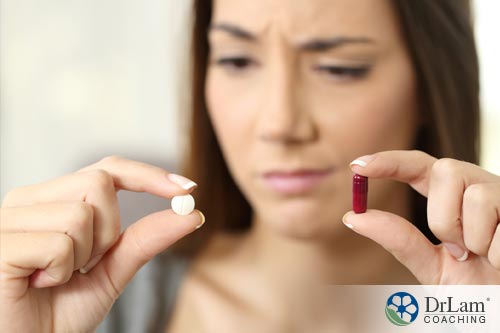 At this point, you may feel discouraged and wonder whether you should just take a multivitamin and hope for the best. While it’s true it can be a little overwhelming at first to figure all of this out, rest assured that it’s worth the time and research you put into it. By the end of this article, you will have a good enough understanding to take your first step.
At this point, you may feel discouraged and wonder whether you should just take a multivitamin and hope for the best. While it’s true it can be a little overwhelming at first to figure all of this out, rest assured that it’s worth the time and research you put into it. By the end of this article, you will have a good enough understanding to take your first step.
Depending on your condition, taking supplements may be exactly what you need to increase your vitality and support your recovery from AFS. Adrenal fatigue supplements can help stabilize your HPA, strengthen your adrenal glands’ ability to produce hormones again, reduce inflammation, rebalance the microbiome, and increase brain function, among other things.
There are tons of supplements out there, with different potencies, delivery systems, forms, and quality. Adrenal fatigue supplements can range from gentle to potent. Generally, we like to classify them into the following categories:
We’ll cover all of these and tell you how they can help with AFS. But, we have to warn you of another mistake some people make when they are thinking about supplementing: taking the strongest, or highest potency adrenal fatigue supplements in the hopes of getting a big push in recovery.
There are very potent supplements that can give you a huge energy boost, but this increase in energy is not only short-lived, but it can also come with its fair share of side-effects, such as anxiety, insomnia, digestive issues, a feeling of being “wired and tired,” and adrenal crashes. They might stimulate your body unnecessarily and actually cause more physiologic stress than they help.
That’s why it’s all about context. In the right context, a supplement taken at the right time and in the right dosage, at the right frequency, and with the right delivery system can make such a huge difference to your recovery and your day to day wellbeing that it would make up for all the time you have spent learning about how to supplement properly. It is very important to find an experienced practitioner who understands your body’s constitution and knows how to titrate the supplements to your individual body, as no two people are the same. This is what our nutritional coaching team does, designs individual plans based on the constitution of each client.
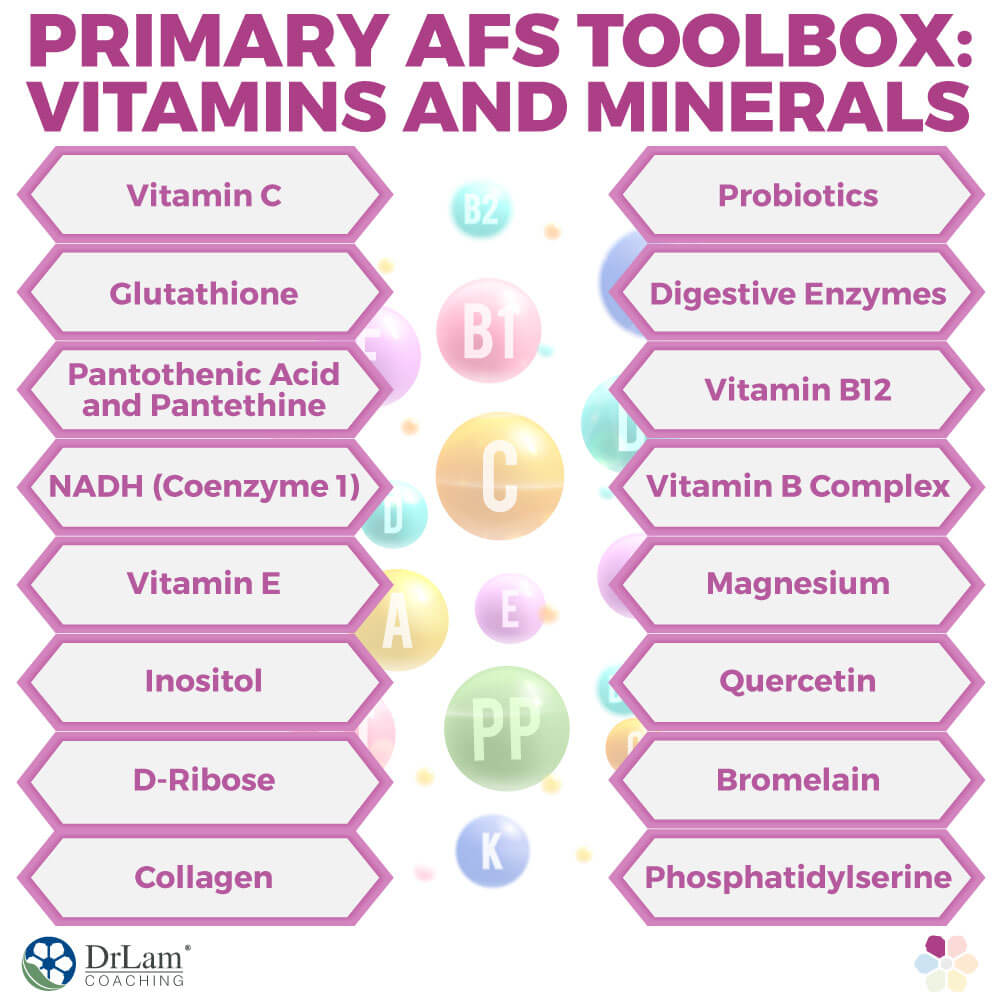
Let’s start with the more mild adrenal fatigue supplements, which include a variety of vitamins, minerals, and other nutrients that are gentle enough to be taken if your AFS is in early stage 3 (also called adrenal exhaustion) or earlier. However, for most people in the late phases of stage 3, any kind of supplement may be too much. What works for one person may backfire in another.
Subclinical vitamin C deficiency is probably the most prevalent deficiency we see in AFS. The adrenal glands actually contain one of the body’s highest concentrations of vitamin C, and so, if there’s deficiency, that’s also where it’s needed the most.
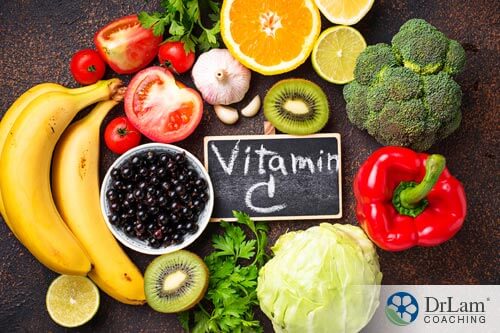 For healthy individuals, the recommended daily allowance of vitamin C is 75 mg for women, and 90 mg for men. But, if you have AFS, you will need much more, generally speaking. However, depending on the person, vitamin C can also trigger adrenal crashes if not properly used. So do be careful. There are also various delivery systems and potency that has to be individualized. Over-reliance on vitamin C and using a one-size-fits-all approach is a common recovery mistake.
For healthy individuals, the recommended daily allowance of vitamin C is 75 mg for women, and 90 mg for men. But, if you have AFS, you will need much more, generally speaking. However, depending on the person, vitamin C can also trigger adrenal crashes if not properly used. So do be careful. There are also various delivery systems and potency that has to be individualized. Over-reliance on vitamin C and using a one-size-fits-all approach is a common recovery mistake.
One of the symptoms of AFS is lowered immunity, and often, AFS is triggered by the presence of concurrent infections, especially stealth viruses that destroy tissue. These can include the Epstein Barr virus and Lyme co-infections. Vitamin C is known to be an immune booster that can help fight off such infections and inflammation.
Vitamin C is a powerful antioxidant. Oxidative stress is a huge health hazard, and it can trigger or aggravate adrenal fatigue. Oxidative stress occurs when the number of free radicals in the system overwhelms the number of antioxidants that can neutralize them. Free radicals are unstable molecules that steal electrons from stable molecules, destabilizing them in turn. Antioxidants are compounds that can lend electrons to free radicals, helping them become stable, and thus neutralizing them. One of the reasons vitamin C is a great antioxidant is because it is water soluble, which makes it more available to the cells that are in danger of oxidative damage and death.
Vitamin C also helps in the formation of collagens that are needed to keep the vascular system healthy and well supplied, and thus it helps prevent heart disease. Perhaps most importantly for AFS, vitamin C is a cofactor needed to make adrenal hormones like cortisol.
Dosage: Vitamin C supplements come in various forms, and so the dosage we recommend for those with AFS will vary accordingly:
Vitamin C is best dispensed in a cocktail format using various forms and delivery systems timed and doses to give a sustained delivery.
Cautions: Although vitamin C is one of the safest and most frequently recommended adrenal fatigue supplements, there are a few cases where you may need to take care, such as those who have hemochromatosis, those taking high doses of calcium supplements, the elderly, those with kidney problems, and those with G6PD deficiency.
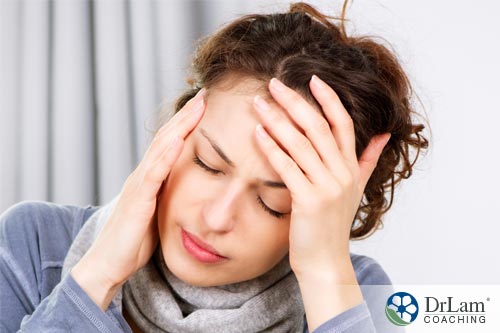 Although some symptoms of AFS - such as anxiety, diarrhea, fatigue, joint pain, and heart palpitations - may worsen with vitamin C supplementation, it’s important to understand that these are not side effects of the vitamin C itself. It’s just that, due to the slowed breakdown and clearance of metabolites from the body that usually happens with AFS, vitamin C may add to the metabolite load circulating the body. These symptoms begin to lift once liver function improves.
Although some symptoms of AFS - such as anxiety, diarrhea, fatigue, joint pain, and heart palpitations - may worsen with vitamin C supplementation, it’s important to understand that these are not side effects of the vitamin C itself. It’s just that, due to the slowed breakdown and clearance of metabolites from the body that usually happens with AFS, vitamin C may add to the metabolite load circulating the body. These symptoms begin to lift once liver function improves.
Still, if you find that your AFS or anxiety is getting worse when taking vitamin C, you should stop taking it and consult your doctor.
Next up on the list of gentle yet powerful adrenal fatigue supplements is glutathione, the mother of all antioxidants. Oxidative stress isn’t just a problem for adrenal fatigue - it is also implicated in chronic degenerative diseases, Alzheimer’s disease, cancer, and premature aging.
Glutathione is also an excellent detoxifier. It helps clear out toxic metabolites, xenobiotics, lead, mercury, and pesticides.
Your cells make glutathione, but under certain conditions, their glutathione production drops, exposing them to damage and death. That’s why, if you have AFS or any other chronic condition, it’s important to ensure your body is making or getting enough glutathione.
Glutathione works on an intracellular level, while vitamin C works on an extracellular level, and together they work synergistically. And because glutathione is a recycler, once vitamin C has donated electrons to free radicals, glutathione will then help recycle it in order to enable it to donate again. That’s why we put these two together in your primary adrenal fatigue supplements toolbox.
Dosage: Because the regular form of glutathione will break down in the stomach before it has a chance to enter the bloodstream, we advise taking the oral liposomal form, such as LipoNano® Glutathione. 100 to 800 mg per day is good.
Pantothenic acid, which is vitamin B5, and pantethine are two of the most important adrenal fatigue supplements we know of. When you ingest pantothenic acid through food or supplementation, your body will turn it into a more stable and metabolically active form, pantethine. Pantethine is then converted into coenzyme A, a very important enzyme that is a cofactor in over 70 different enzymatic pathways.
Coenzyme A plays an active role in the breakdown of proteins, carbohydrates, and fats in order to turn them into energy. If you have AFS, you can see how that would be helpful. Your body is in dire need of more energy. Coenzyme A also helps in the synthesis of cholesterol and all of its metabolites, including sex hormones and adrenal hormones, and it is an anti-inflammatory agent.
Dosage: Between 300 and 1200 mg per day of a pantethine and pantothenic acid blend, since both forms have useful effects. One brand we like is Pandrenal®. In some cases of AFS, we sometimes have a client take much higher doses, but only under supervision.
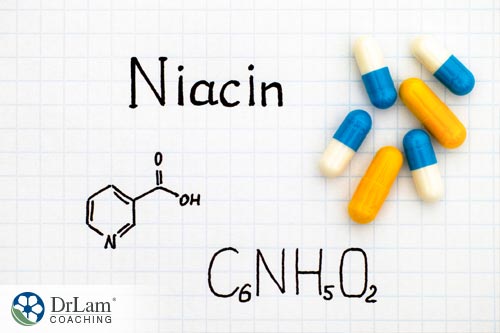 Your body naturally makes its own NADH from a form of niacin, or vitamin B3, called niacinamide. But with aging and the presence of chronic diseases, this conversion can be slowed. NADH is important for the energy-production pathway - it plays a role in how all the cells in your body get their energy.
Your body naturally makes its own NADH from a form of niacin, or vitamin B3, called niacinamide. But with aging and the presence of chronic diseases, this conversion can be slowed. NADH is important for the energy-production pathway - it plays a role in how all the cells in your body get their energy.
NADH helps the brain’s neurons make dopamine, which is a chemical precursor to norepinephrine and epinephrine (adrenaline). Norepinephrine and epinephrine, like cortisol, help your body deal with stress, but too much of either can worsen AFS and reactive sympathoadrenal responses, which is common in adrenal exhaustion.
Dosage: If you are very weak or sensitive, you may not be able to tolerate this supplement. But, with the right dosage, this intolerance can be avoided. Anywhere from 2.5 to 20 mg per day is usually safe and well tolerated.
Another powerful antioxidant, vitamin E helps neutralize free radicals found inside the adrenal glands. This is why it is one of the great adrenal fatigue supplements. Also, like glutathione, it helps recycle vitamin C, and so combats oxidative stress from many different angles.
Vitamin E is metabolized through the liver, so if you have advanced adrenal exhaustion and trouble clearing toxins from the body, you need to be careful with it.
Dosage: We recommend a mix of tocopherols in 400 to 800 IU per day, and you’ll need to take it consistently for three months to see the benefits.
Cautions: Please be aware that it has blood-thinning properties, so if you are on blood thinning medication, you need to take care, and it’s best to have a health professional’s advice.
Inositol is a natural relative of B-complex vitamins, and it helps to relieve tension and to encourage better sleep. It is also a mood lifter and can help those suffering from depression, anxiety, and even OCD. If you have AFS, you are likely to be battling with bouts of mild depression, insomnia, anxiety, and nervousness, so inositol may be a useful addition in your primary adrenal fatigue supplements toolbox.
Inositol is naturally found in fresh produce, red meat, and whole grains, but because a lot of it can be in the form of fiber, it is sometimes not fully absorbed. That’s why we recommend supplementation.
Dosage: 500 to 2000 mg per day at bedtime to help with sleep and anxiety. But if you have blood sugar imbalances, you may be more sensitive, so stay aware of how it might affect you and adjust accordingly.
D-ribose plays an important role in the pentose phosphate pathway, which helps synthesize energy and produce genetic material. It is also essential for the production of fatty acids and hormones. It helps improve energy, and it supports heart function.
Taken with CoQ10 and L-carnitine, D-ribose will really help with energy levels for those with AFS. It’s also useful for those whose cardionomic circuit is dysregulated, as it will support heart health.
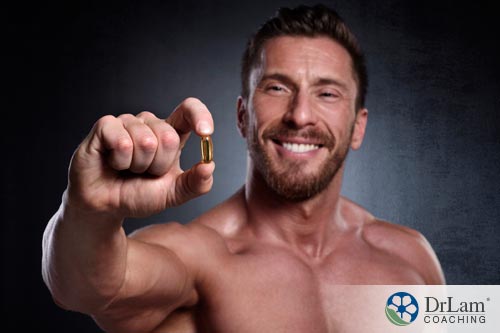 In adrenal fatigue recovery, D-ribose is very useful in getting over adrenal crashes specifically, and to give you more energy in general. It’s also very good before and after exercise.
In adrenal fatigue recovery, D-ribose is very useful in getting over adrenal crashes specifically, and to give you more energy in general. It’s also very good before and after exercise.
Dosage: 1 to 10 g per day will help those with AFS and cardionomic circuit dysregulation. We recommend taking it with cofactors such as L-carnitine, alpha-lipoic acid, and CoQ10. The most common and bioavailable form of D-ribose is powder.
Cautions: Although it’s generally very safe, we do not recommend it to pregnant women, nursing mothers, young children, or for those with blood sugar issues.
Collagen is the most prevalent protein in the body. It maintains blood vessels and connective tissues and supports the musculoskeletal system. There are 20 different types of collagen, but the most abundant are types I and III.
Type I collagen is found in skin, artery walls, scar tissue, and the organic parts of bones and teeth. Type III collagen is found mainly in tissues that are elastic. These two types of collagen begin to decline after age 35, which is why you start to see the signs of aging accelerate thereafter, including the formation of wrinkles and the loss of elasticity.
Those with advanced AFS complain of losing muscle mass. That is because by then, the body has started to break down the collagen and muscles for fuel, since energy levels are so low. This collagen needs to be replenished for the body to recover, and you can do this with collagen supplements.
Dosage: Take 3 to 15 g per day of types I and III blended together. Hydrolyzed, powdered, 100% pure collagen is best since it’s easier to absorb. If you get gastric discomfort or constipation, that means the dose is too high for you.
Dysbiosis (the imbalance of the gut’s microbiome) is a very common affliction, especially in those with AFS, since the gut flora is very sensitive to stress and unhealthy diets, both of which are prime causes of adrenal fatigue as well. When the gut’s microbiome is not balanced, inflammation tends to follow.
Chronic inflammation, which usually originates in the gut, is one of the biggest causes of chronic conditions. And so the importance of a strong and healthy microbiome cannot be overstated.
Bringing the microbiome back to a state of health and balance means you need to feed the good bacteria in the gut. This can be done with a healthy diet that is rich in probiotics, such as raw yogurt, kefir, fermented vegetables, and miso. In the meantime, taking a probiotic supplement can be an excellent support.
Dosage: Take 1 to 4 tablets daily before meals. There are many different probiotic supplements on the market, with varying potencies. So follow the instructions on the packet, and make sure the product is stored properly.
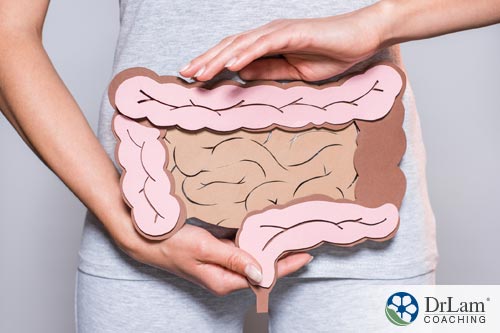 Poor assimilation is a big issue in AFS, and with it comes the buildup of toxins. Digestive enzymes help with the breaking down of food and the delivery of nutrients. Fat-soluble vitamins, such as vitamins A, D, E, and K, need fat to be absorbed, and this fat needs to be broken down by the enzyme lipase. If lipase is lacking, the fat will remain intact and the vitamins will not become bioavailable.
Poor assimilation is a big issue in AFS, and with it comes the buildup of toxins. Digestive enzymes help with the breaking down of food and the delivery of nutrients. Fat-soluble vitamins, such as vitamins A, D, E, and K, need fat to be absorbed, and this fat needs to be broken down by the enzyme lipase. If lipase is lacking, the fat will remain intact and the vitamins will not become bioavailable.
In cases like this, you might be taking the right adrenal fatigue supplements, but due to your inability to absorb them properly, they won’t have an effect. That’s why taking a digestive enzyme can be very useful in early recovery, until your digestion is back to full power. Plus, with better digestion, you’ll also notice much better skin.
Dosage: Take a digestive enzyme tablet before your heaviest meals. There are different brands with different potencies though, so it’s best to follow the instructions on the packet.
The importance of vitamin B12 has taken center-stage lately in health and wellness communities. That may be due to the rise in vegan and vegetarian diets, which usually lack B12. But, what’s interesting is that even people who eat animal products, which are good sources of B12, seem to also suffer from a deficiency in B12. And if you have AFS, you may need to limit your intake of animal products, so a B12 supplement may be necessary.
Vitamin B12 deficiency is extremely dangerous, and it can eventually lead to symptoms similar to Alzheimer’s disease. Because vitamin B12 is a stimulatory compound by nature, it is widely used to increase energy. Improper dosage can lead to a sense of being “wired” and adrenal crashes can be triggered.
Dosage: 100 to 1000 mcg per day. If you are weak you may need to be careful with the dosage so as not to over-stimulate your system. If you decide to stop taking the supplement, you must do so gradually. You can also get advice and support with this process from our nutritional team to avoid side effects and help retain your health.
We’ve covered the two main B vitamins that you need in your primary adrenal fatigue supplements toolbox, but in practice, you need the entire B complex so that the different B vitamins can support each other. However, since adequate amounts can be found in a balanced diet, only those that are nutritionally depleted will need to take a B complex supplement.
Dosage: If you are nutritionally deficient, consider taking a vitamin B complex formula with 60 to 120 mg of B3, 50 to 100 mg of B6, and 100 to 300 mcg of B12.
Subclinical magnesium deficiency is one of the most prevalent mineral deficiencies, and that’s quite a health hazard since it plays a significant role in so many bodily functions. It is a cofactor in over 300 enzymatic reactions, and it is crucial for the utilization of ATP, the energy currency of life. It works synergistically with vitamin C and pantothenic acid in steroid synthesis.
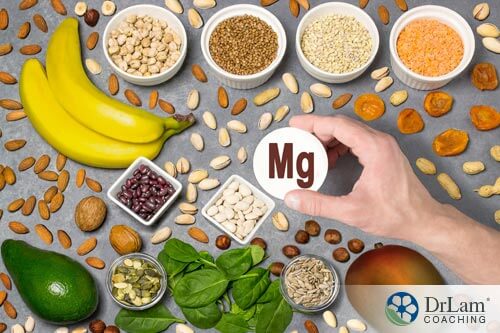 Although found in nuts, whole grains, and legumes, most people (around 75% of the North American population) are still not getting the recommended daily allowance. Symptoms of deficiency include things like restlessness, muscle tics and spasms, osteoporosis, fatigue, weakness, vasospasms, cardiac arrhythmia, PMS, irritability, depression, migraines, noise sensitivity, insulin resistance, and pain sensitivity.
Although found in nuts, whole grains, and legumes, most people (around 75% of the North American population) are still not getting the recommended daily allowance. Symptoms of deficiency include things like restlessness, muscle tics and spasms, osteoporosis, fatigue, weakness, vasospasms, cardiac arrhythmia, PMS, irritability, depression, migraines, noise sensitivity, insulin resistance, and pain sensitivity.
For those with AFS, paradoxical reactions ranging from irritation to more fatigue to constipation to anxiety are common, so you have to be careful with this supplement. Magnesium oil is particularly prone to this problem. There are many forms and delivery system, and not all are the same. Talk to a health professional to make sure you are making the best choice for your body.
Dosage: 400 to 1000 mg per day. You may want to start small and gradually build up to see how your body reacts. A harmless loose bowel movement may result if you take too much.
Quercetin is a wonderful natural antihistamine. It’s also great for those with rheumatoid arthritis and colitis because it interrupts the action of the inflammatory substances generated by their autoimmune responses. If you have AFS, you might be suffering from increased food and chemical sensitivities, and so quercetin can really help with the inflammation these sensitivities trigger.
What’s also great about it is that, unlike over-the-counter antihistamines, it will not make you drowsy. Usually, you can get enough of it by drinking unfermented green tea or red wine, but these are not recommended for those with AFS. Alternatively, onions, green peppers, tomatoes, and broccoli are good sources.
But, since you will likely need a large amount to really see a good effect, supplementation is recommended. And be sure to take it with the digestive enzyme bromelain, which we’ll get into next.
Dosage: 600 to 6000 mg per day, divided throughout the day. Take it on an empty stomach.
Bromelain is an enzyme found in pineapple stems. It has been shown to be an excellent anti-inflammatory agent that promotes healing in muscles and joints. It also helps in managing inflammatory conditions such as colitis, asthma, allergies, and arthritis. High-potency and high-quality bromelain supplements are best, and they should be taken with quercetin on an empty stomach.
Dosage: 600 to 4000 mg with at least 2500 to 3500 GDU units.
Phosphatidylserine is an element of nerve cell production and it’s good for enhancing memory. It’s also used to reduce cortisol levels when the body is under stress. It is especially useful for those who suffer from sleep onset insomnia due to high nighttime cortisol. Not everyone can tolerate phosphatidylserine. Paradoxical reactions are common, especially in adrenal fatigue. The dosage frequency also is challenging, as for many, multiple doses timed throughout the day are necessary, depending on how fast the body metabolizes this chemical.
Dosage: 200 to 1000 mg per day. But be careful if you have advanced AFS as exaggerated responses may occur.
The adrenal fatigue supplements we listed above are what we most frequently recommend for those starting their adrenal fatigue recovery journey. But, from time to time, when more specific types of support are needed and the body is ready for them, we may also suggest one or a combination of the following:
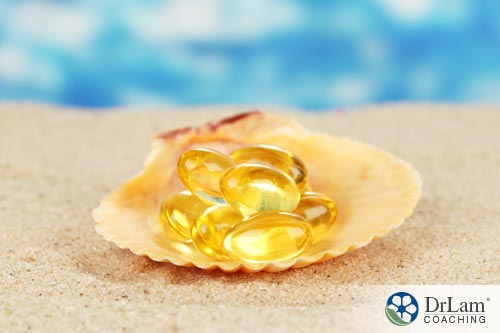
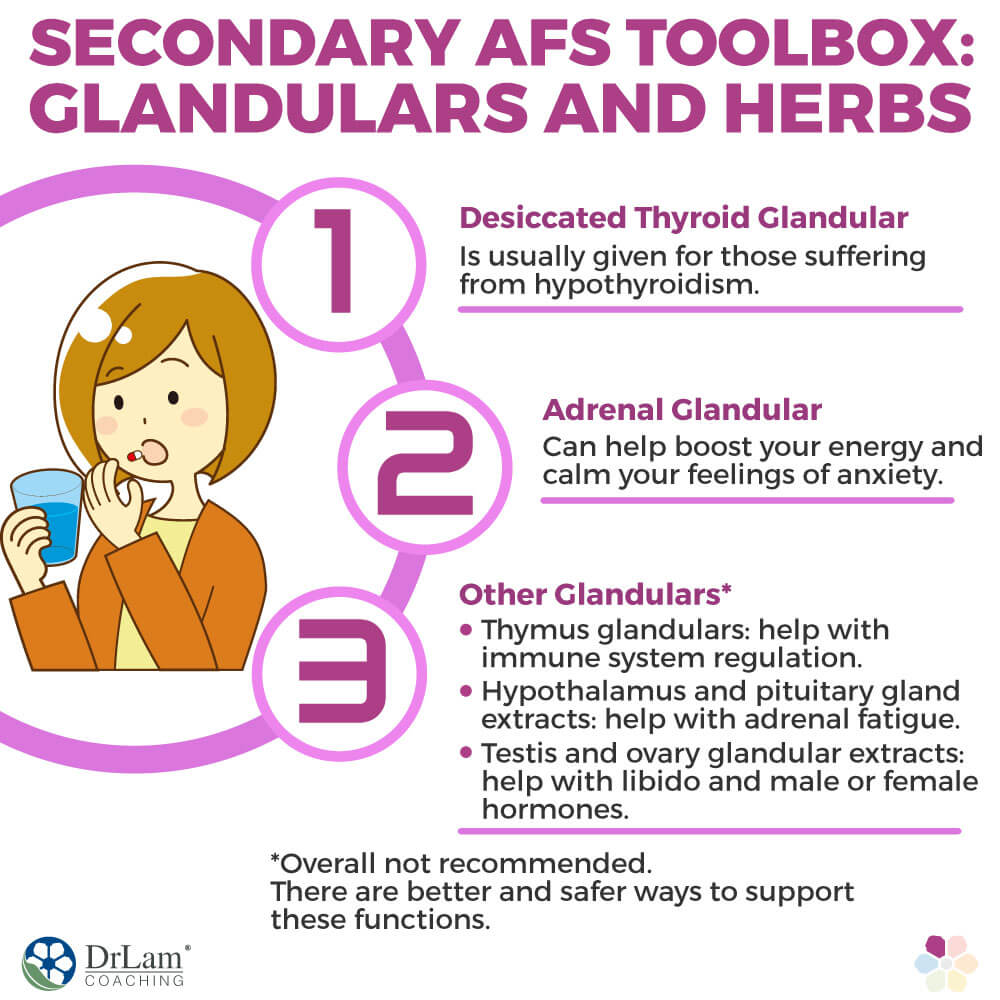
Glandulars and herbs should be used as adrenal fatigue supplements in very specific situations or if the more gentle supplements did not fully bring about the required effect. Glandulars are made with the organs and tissues of animals, while herbs come from plants.
Glandulars should be used during the milder stages of AFS, and they serve as adaptogens that can help your body adapt and to boost your energy reserves. If used in more advanced stages, they tend to have a stimulatory effect, which adds to the pressure on your adrenals and makes the condition worse.
Due to the nature of herbal and glandular supplementation, we don’t recommend their use without the guidance of an experienced medical professional, since they are medicinally potent and lack research and standardization, which can lead to their misuse.
However, with the correct use, herbs and glandulars can be a helpful part of your adrenal fatigue supplements regiment. Following are some of the glandulars we find most useful for our nutritional coaching clients.
This supplement is derived from the thyroid glands of pigs, sheep, or cows, and is usually given for those suffering from hypothyroidism. Some of the more popular brands include Armour® thyroid (porcine) and Thyrolar® (bovine). They are both FDA approved.
Many people with AFS tend to also have slowed thyroid function, so this could be a good option for you if that is the case. But if you are already taking thyroid medication, do not take a thyroid glandular as well, since that may lead to hyperthyroidism. However, if you take these thyroid glandulars and still don’t feel better, you should take a look at your adrenal gland function before continually increasing the thyroid dosing.
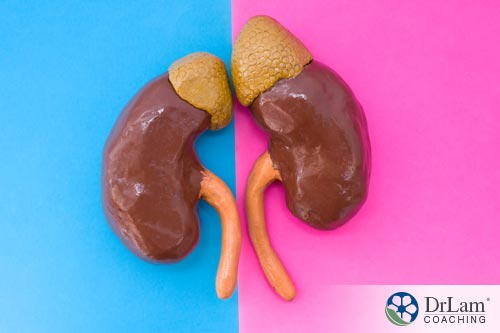 An adrenal glandular can be quite useful in early recovery for those with milder AFS. It can help boost your energy and calm your feelings of anxiety.
An adrenal glandular can be quite useful in early recovery for those with milder AFS. It can help boost your energy and calm your feelings of anxiety.
However, there are two big issues we see often happening with the use of an adrenal glandular.
The first is that it is used when the adrenals are too weak and instead of having a calming effect, it has a stimulatory effect, which can trigger paradoxical reactions.
The second is that sufferers rely on them for long periods of time, stalling the natural recovery process for longer than necessary. The adrenals are stimulated to pump out more cortisol, and the body has to deal with the increased stimulation from the glandulars.
There are a few other glandular products out there that claim health benefits, such as thymus glandulars to help with immune system regulation, hypothalamus and pituitary gland extracts to help with adrenal fatigue, and testis and ovary glandular extracts to help with libido and male or female hormones.
Overall, however, we don’t recommend any of these since in our experience there are better and safer ways to support these functions.
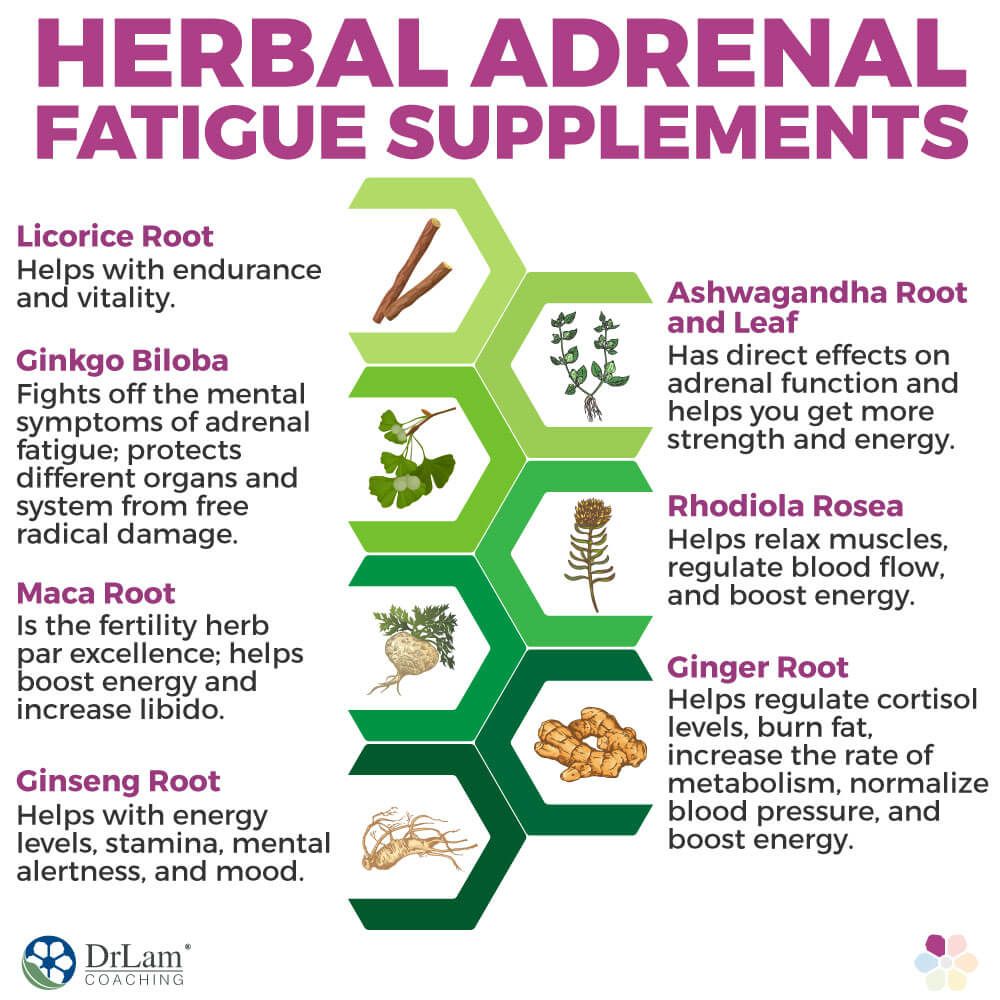
A lot of people think that since herbs are natural and plant-based, they are safe and easy on the system. This is another common mistake that we’d like you to avoid making. Herbs can cause strong reactions, both positive and negative. For all the following herbs, you should not take them if you are pregnant or have a serious health condition. Also, they should only be taken in the earlier stages of AFS, as in later stages they may be too stimulatory, which can increase fatigue, anxiety, and other symptoms.
Licorice is an anti-stress herb that helps with endurance and vitality. It is one of the most commonly used herbs in Traditional Chinese Medicine, and it can help block the conversion of cortisol into cortisone. It is also used to ward off feelings of low blood sugar, which is a common symptom in AFS. And it helps increase the production of another commonly deficient hormone in advanced AFS – aldosterone.
This ayurvedic adaptogen is also a cardiotropic and cardioprotective herb. It has direct effects on adrenal function and helps you get more strength and energy. It’s also used as a mild aphrodisiac. Ashwagandha is one of the few secondary adrenal fatigue supplements that may be tolerated in advanced stages of AFS, but if that is the case, it needs to be taken under medical supervision.
Another adaptogen, Rhodiola can help relax muscles, regulate blood flow, and boost energy. It helps in the early stages of AFS to support cortisol production while also slowing its secretion. This keeps cortisol more evenly distributed throughout the day rather than in spikes and drops.
 Gingko is a powerful antioxidant that has been used in Chinese Medicine for millennia. It’s excellent in fighting off the mental symptoms of adrenal fatigue, such as brain fog, mental fatigue, and memory loss. Its antioxidant properties also help protect different organs and system from free radical damage.
Gingko is a powerful antioxidant that has been used in Chinese Medicine for millennia. It’s excellent in fighting off the mental symptoms of adrenal fatigue, such as brain fog, mental fatigue, and memory loss. Its antioxidant properties also help protect different organs and system from free radical damage.
Maca root is the fertility herb par excellence. It also helps boost energy and increase libido. In the earlier stages of AFS, it should be used as part of a holistic nutritional approach rather than on its own. However, keep in mind the stimulating properties of maca root and only use it with a supervising provider’s guidance.
Ginger root is an adaptogen that helps regulate cortisol levels, burn fat, increase the rate of metabolism, normalize blood pressure, and boost energy. It also stimulates the release of enzymes that break down proteins, and so can help with digestion.
There are two types of ginseng root that can be used to help those with AFS. Korean ginseng can help boost energy, but it is only recommended for men and in small doses. It can have unwanted side effects for women, such as increased facial hair and acne. Siberian ginseng can be used by both men and women, and it can help with energy levels, stamina, mental alertness, and mood.
The final category of adrenal fatigue supplements is hormones. Hormone replacement in general needs to be the last resort, and must be handled with a lot of care. People experience different side effects from taking hormones, and so we do not advise you try any of the following without proper guidance from a medical professional experienced in AFS or your particular condition.
Pregnenolone is sometimes referred to as “the mother of all hormones” because it is the chemical precursor to so many other hormones, such as DHEA, androstenedione, testosterone, and estrogen. For AFS recovery, it can help improve energy levels, memory, libido, mental clarity, and even vision. It can also ease PMS and hot flashes. For dosage, 10 to 50 mg per day is the usual recommendation.
DHEA mimics the actions of pregnenolone, but with more intense effects, whether positive or negative. It can elevate mood and lower cholesterol. But beware that it has blood-thinning and hair-loss properties as well. It is usually taken along with pregnenolone, and in the dosage of 10 to 50 mg per day.
Hydrocortisone, or cortisol, has been conventionally used for Addison’s disease for quite some time, though some health professionals use it for AFS as well. It should only be a last resort in very severe cases, as the bulk of recovery should come from nutritional and lifestyle changes. We have found the most effective dosages to be 5 to 10 mg in the morning, 0 to 7.5 mg at noon, and 0 to 2.5 mg at 4 p.m.
Generally, testosterone and estrogen are not used in adrenal fatigue recovery. Progesterone may be useful for those whose recovery is already well underway, and their adrenals are strong again.
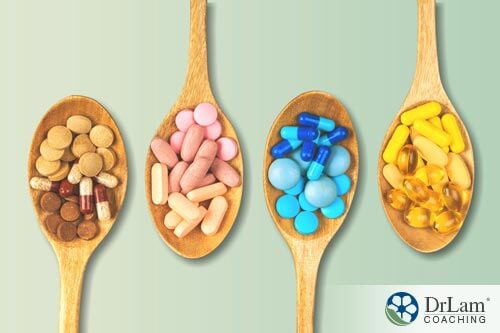 Once you have the most important pillars of AFS recovery in place (diet, stress management, sleep, and mild exercise), you can use adrenal fatigue supplements to fill in any gaps or give an extra therapeutic push. However, it can be difficult to design an adrenal fatigue supplements toolbox of vitamins, minerals, and other gentle nutrients that are designed to improve your unique health needs.
Once you have the most important pillars of AFS recovery in place (diet, stress management, sleep, and mild exercise), you can use adrenal fatigue supplements to fill in any gaps or give an extra therapeutic push. However, it can be difficult to design an adrenal fatigue supplements toolbox of vitamins, minerals, and other gentle nutrients that are designed to improve your unique health needs.
Our nutritional coaching team can help you design this AFS toolbox. With extensive experience in AFS recovery, they can suggest supplements based on your unique body and condition. This will help you avoid side effects and ensure you get the best results possible from your efforts.
If you’re tired of guessing and want expert guidance, then contact our nutritional coaching team for a FREE** initial consultation today.
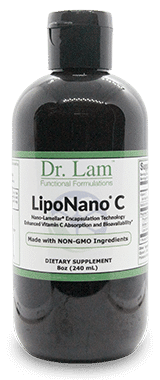
Energize Adrenals with LipoNano C: Revive & Thrive!
Adrenal fatigue supplements come in all different forms, from vitamins, minerals, and nutrients, to herbs, glandulars, and hormones. What’s important is to do your research, start slowly, consider your body’s needs, and pay close attention to your reactions with the advice of a trusted medical professional. There is a bigger picture to keep in mind than just suppressing symptoms, and you must find what works for you.